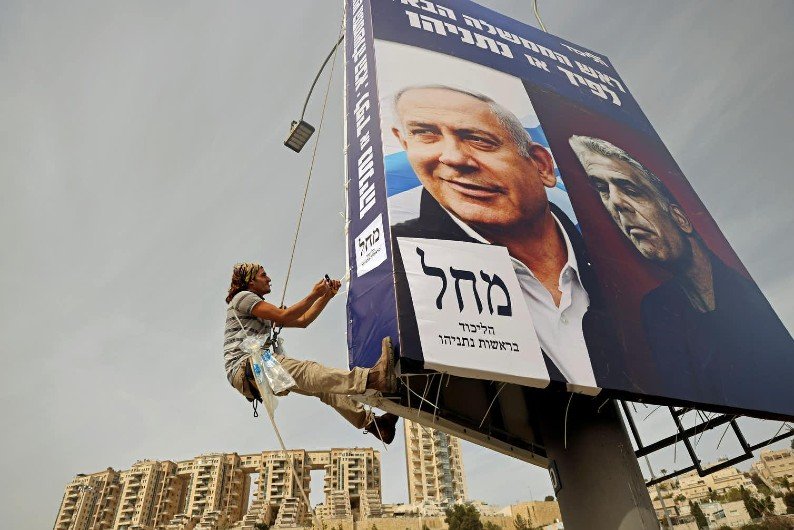For Israel, this has been the “no change, all change” election. No change in that the result appears inconclusive – just like the three previous elections. It’s also all change, as we are seeing the beginnings of the political normalisation between Jews and Arabs for the first time since the state was created in 1948.
This despite the fact that this fourth national election in two years was all about whether Benjamin Netanyahu, Israel’s longest serving prime minister, who is facing trial on corruption and breach of trust, should stay in office.
Policies were at the sidelines of the campaign. Netanyahu had one aim, which was to remain prime minister at all costs. His opponents on the centre left and centre right, meanwhile, were focused on removing him.
He failed to secure a majority for his camp and also his Likud party lost 300,000 votes and six seats. His alliance with two Jewish religious parties and the extreme right so-called Religious Zionists means he can count on 52 seats.
His opponents are on 57, leaving the right-wing Yamina, Islamist Ra’am (or United Arab List) taking up the rest. No one has the necessary 61 seats to form a government unless they can win over Mansour Abbas, Ra’am’s leader.
Within hours of the final results, politicians in both pro and anti-Netanyahu blocs were in discussions with Abbas. Ayoub Kara, an outgoing Likud member of the Knesset (MK), met Abbas and tweeted afterwards about “the new pragmatic Ra’am that doesn’t deny Israel’s existence and wants to be a partner in national decisions”. Another Likud MK, David Bitan, has commented that: “we could get along with the United Arab List”.
Read the article by John Strawson in The Mandarin.

